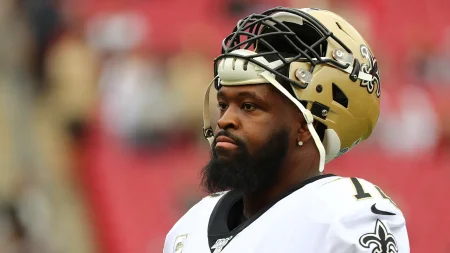The incident involving Philadelphia Eagles fan Ryan Caldwell and Green Bay Packers fan Ally Keller during a playoff game ignited a firestorm of controversy, highlighting the complexities of fan behavior and the power of social media. Caldwell, captured on video verbally berating Keller with vulgar insults, faced swift and severe consequences, losing his job and becoming the target of widespread online condemnation. His subsequent apology, while acknowledging his unacceptable behavior, also claimed provocation and a lack of full context in the viral video, further fueling the debate surrounding the incident.
Caldwell’s statement expressed regret for his actions, directed towards Keller, his family and friends, his former employer, and the broader fan communities. He admitted to using unforgivable language in the heat of the moment, but insisted the circulating video didn’t portray the complete picture. This assertion of provocation, without further elaboration, left room for speculation and fueled skepticism among many who viewed the video. The incident rapidly escalated from a stadium altercation to a public spectacle, with Caldwell’s life drastically altered by the viral spread of the video.
The online reaction was swift and unforgiving. Social media users celebrated Caldwell’s firing and mocked his apology, questioning the sincerity of his remorse given his professional background in inclusivity. Some commentators saw the incident as a prime example of “social media justice,” where online outrage leads to real-world repercussions. Others argued that Caldwell’s behavior was representative of a larger problem within the Eagles fan base, citing a history of unruly conduct and suggesting a culture of hostility towards opposing teams.
The incident also sparked broader discussions about fan behavior and the responsibilities of spectators at sporting events. While some sympathized with Caldwell’s claim of provocation, many condemned his response as excessive and inappropriate, regardless of the preceding events. Conservative commentator Matt Walsh weighed in on the controversy, criticizing Caldwell’s behavior while also advising against wearing opposing team jerseys in potentially hostile environments. Walsh’s comments, while acknowledging Caldwell’s fault, also placed partial blame on Keller and her fiancé for putting themselves in a potentially volatile situation, adding another layer to the already complex debate. This perspective, while controversial, highlighted the often-blurred lines of acceptable behavior and the potential for misunderstandings in highly charged environments like sporting events.
The incident brought to light the long-standing reputation of Eagles fans for rowdy behavior, recalling past incidents of violence and disorder at Veterans Stadium, the team’s former home. The stadium’s infamous on-site court and jail cells served as a stark reminder of the extremes of fan misconduct. The 1997 incident involving a flare gun further cemented this image, prompting the team owner to address the ongoing issue of fan behavior. This history provided context for the Caldwell incident, raising questions about the pervasiveness of aggressive behavior among Eagles fans and the responsibility of the team to address it.
The Ryan Caldwell incident serves as a cautionary tale in the age of social media. It underscores the speed at which online outrage can escalate and the potentially devastating consequences for those caught in the crosshairs. While Caldwell’s actions were undoubtedly inappropriate, the incident also raises questions about the proportionality of the public response and the role of social media in shaping narratives and delivering swift, sometimes unforgiving, justice. The incident serves as a reminder of the power of social media to amplify both positive and negative actions, highlighting the need for responsible online behavior and the importance of considering context and due process before rushing to judgment. It also underscores the need for continued dialogue about acceptable fan behavior and creating a more inclusive and respectful environment at sporting events.










